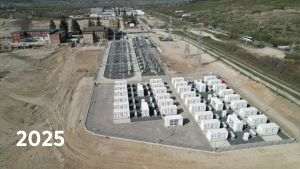• Whereas Romania used to be one of the greatest producers of silk, nowadays its crops of silkworms are dying because we can no longer afford water and power for sericulture
• Romania went from being a founding member of the sericulture professional association, to not being able to afford to send our specialists to international seminars
• The few researchers in the field that are left haven"t been paid in half a year and can"t even afford to pay their bus fare to go to work
With its assets slowly gone to waste over the last twenty years, "Sericarom" SA, the only state owned company that raised silkworms, has seen its utilities disconnected, and runs the risk of entering bankruptcy in the coming two months, due to a debt to the state budget of 1.2 million lei.
The Tax Administration has seized the best assets of the company, and while the authorities are arguing over various plans to rescue the company, "Sericarom" has been left without water and electricity, with its bank accounts frozen, and Romania"s silkworm gene pool is in danger of being permanently lost, just as the silkworm harvest is under way.
A business worth tens of millions of Euros is at risk of becoming a simple memory, in a country that twenty years ago was the sixth largest silk cocoon producer in the world, and is still counted among the fifth largest silk producing countries in the European Union, next to countries like France and Italy.
The loss of our international prestige happens in the most embarrassing manner: Romania is a founding member of the International Sericulture Commission, set up in 1959, it pays a membership fee, but it did not have the money needed to send a representative to attend the latest reunion, which took place in France.
The situation is so dire that the company"s losses have all of a sudden grown to 220,000 lei, researchers haven"t received their salaries in six months, and the five or six experts that still remain have come to the point where they can"t even afford to take the bus to work.
Not even the money for the company"s research projects is coming on time, even though the funding for the company was cut by 80% in 2009.
• Just lots of empty talk
"Sericarom" may be rescued at the last minute, by being converted into the Băneasa Sericulture Research Station, but the Ministry of Agriculture is refusing to pass the draft government bill, claiming this would leave it burdened with another debt riddled company.
The management of "Sericarom" claims that if the company were to become a research station, two problems would be solved at once, by allowing it to receive funding from the state as well as providing better control over the assets of the company, which were for the most part sold off over the last twenty years due to the appetite for real estate investments in the Băneasa area.
"If the Ministry of Agriculture won"t allow us to become a research station and we do not get an exemption from the Tax Administration allowing us to sell the one of the assets which it has seized, for which we have an offer of about 1 million Euros, in order to pay off our debts and resume operations, < Sericarom > will go bankrupt within two months", the company"s manager, eng. Gabriel Lenghel said for BURSA.
The head of Sericarom revealed that if the plan to rescue the company were to succeed, he plans to make several investments in the company"s Calafat branch in the county of Dolj, where the company still owns a plot of land which grows mulberry trees, to allow it to continue production. The division for the preservation of the gene pool would be kept in Bucharest, in Băneasa, where the company owns 2 more hectares of land.
All it would take for the recovery of the sector is an investment of 2 million lei.
Is it really that much for a country that has ambitions?
• What the authorities have to say
Adrian Rădulescu, secretary of state in the Ministry of Agriculture, said the following: "We do not back the project to turn Sericarom into a research station precisely because of its debts. This would just result in the creation of a new research station heavily indebted that would belong to the Ministry of Agriculture".
Ioan Marian, the head of the Privatization Department of the Agency of State Properties (ADS) (which is the sole shareholder of Sericarom) had the following to say: "The ADS did everything to help pass the Draft Government Bill that provided the reorganization of SC Sericarom SA into the Sericulture Research Station Băneasa Bucureşti. We have even approved this project twice, but in the end it is all up to the ministry. As for the sale of the assets that have been seized, we do not support this project for two reasons: the governing law of the ADS clearly specifies that there must be several bids for the assets in question, and what"s more, the ADS could be held liable due to the fact that Sericarom would become a research station without the ownership of all its assets, after selling part of them. In our opinion, the best solution would be for the Tax Administration to foreclose on the company, to get back the amounts it is owed, and then allow Sericarom to continue its business".
Gabriel Lenghel, manager of Sericarom: "Unfortunately, Romania will not repeat the performance it had before "89, of being the sixth largest sericultural country. But with some investments, we could resume the production and breeding of silkworms and thus help restore Romania"s sericulture".
• How it all went to waste
Production
Prior to the Revolution, Romania was the sixth largest producers of silkworm coccoons. Raising silkworms, was done with the help of 5,000 hectares of land on which over 2 million mulberries were grown. Sericulture brought profits of tens of millions of Euros. Right now, the mulberry orchards only span 16.7 hectares, and in 2009 only 5 kilograms of silk cocoons were produced. Now sericulture is causing losses of 220,000 lei. Also, the mulberry orchards, the sericulture farms and the weaving mills have disappeared. Romania is a sericultural country only by name.
Assets
The excellent positioning of "Sericarom", in Băneasa, a stone"s throw away from the DN1 highway, which connects Bucharest and Ploieşti, did not go unnoticed by the people for which the money they could make in real estate was more important than the national interest. The station"s assets have gradually shrunk over the last twenty years, from twenty hectares of land to just two hectares which comprise the buildings and their afferent yards. The company"s employees haven"t currently received their salaries in more than seven months, just as the silk worm harvesting campaign is under way.
The company"s accounts are frozen but it needs to pay the silkworm cocoons to its partners. The National Tax Administration (ANAF) has seized three of the company"s assets. "Sericarom" holds another 37 more hectares of land in Calafat, which house the silkworm cocoon and mulberry production division. What is at stake right now: the rescue of the country"s silkworm gene pool - consisting of 75 races of silkworm (of the Bombyx mori species), as well as 69 breeds of mulberries - and the resumption of production in Calafat, in the county of Dolj - as far away from Băneasa as possible.




























































